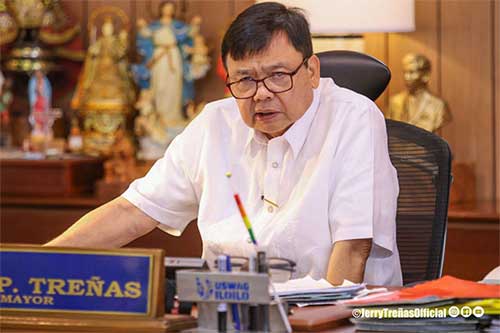By Dolly Yasa
BACOLOD CITY – President Ferdinand Marcos Jr. approved the franchise for Negros Electric and Power Corporation (NEPC) to manage and operate the electricity distribution system in Central Negros, ensuring continuous and uninterrupted electricity supply across the franchise area.
The President signed Republic Act Number 12011 on July 26, 2024, just a day before it would have lapsed into law, a press statement from NEPC said Tuesday.
This legislation will take effect fifteen days after publication in the Official Gazette or a newspaper of general circulation.
The bill originated in the House of Representatives and was introduced by Negrense Representatives Stephen Paduano, Jose Francisco Benitez, Juliet Marie Ferrer, and Greg Gasataya.
It was approved by the House on February 21, 2024, amended by the Senate on May 20, 2024, and further concurred by the House on May 22, 2024, before being forwarded to the Office of the President.
NEPC, also known as Negros Power, is a joint venture company between Enrique Razon’s Primelectric Holdings Inc. (PHI) and Central Negros Electric Cooperative (Ceneco), established to enhance power distribution and customer service for over 220,000 active accounts in the cities of Bacolod, Bago, Talisay, Silay, and the municipalities of Murcia and Don Salvador Benedicto.
Within the agreement, PHI will acquire all power distribution assets of Ceneco valued at over two billion pesos, with 70% in cash and the remaining 30% as Ceneco’s share in NEPC.
The National Electrification Administration (NEA) endorsed Ceneco’s decision while instructing priority on loan repayments and employee retirement and separation benefits payments outlined in their Collective Bargaining Agreements.
Negros Power confirmed the employment of over 200 Ceneco employees.
Negros Power and MORE Power have augmented Ceneco and jointly conducted preventive maintenance activities and responded to trouble calls from consumers.
The new power distributor also prepared their offices, materials, and equipment needed in anticipation of their upcoming operation this August to ensure a smooth transition.
Expressing gratitude to the President, legislators, consumers, and local leaders in Central Negros for their support, Negros Power President and CEO Roel Castro emphasized the company’s dedication to improving electric service and fulfilling promises to consumers.
“We are grateful that our leaders and everyone are supporting this initiative to improve electric service for consumers. We now have the law, it’s time to walk the talk, and we are ready to serve and fulfill our promises to the consumers of Central Negros,” Castro said.
Negros Power allocated an initial capital of two billion pesos for a five-year plan to rehabilitate and modernize the electric infrastructure, aiming to establish a robust distribution system.
Castro urged ongoing support and collaboration for the planned five-year rehabilitation journey to improve the system and reduce incidents of unscheduled power outages.
“We seek your continued support and cooperation as we commence the five-year journey of continuous rehabilitation to enhance the system and minimize instances of unscheduled power interruptions,” he added.
Negros Power will apply for a Certificate of Public Convenience and Necessity (CPCN) from the Energy Regulatory Commission (ERC) to commence official operations.
Earlier, Castro said NEPC is ready to take over Central Negros Electric Cooperative on August 1, 2024.
“We are prepared and ready to take over. When I say we are ready, it means we are making sure that all the systems are there, all the warm bodies are there, all the forms are there,” Castro said.
Castro said NEPC has processed its Certificate of Public Convenience and Necessity (CPCN) with the Energy Regulatory Commission for evaluation.
CPCN is a permit granted to a utility that authorizes it to:
- a) provide service to a new geographic area;
- b) enter into a new franchise agreement; or
- c) construct and operate a new facility or an extension of a facility that is outside the “ordinary course of business.”
Castro pointed out, “The CPCN can only be granted once we have the franchise, but we already worked for its early application.”






















